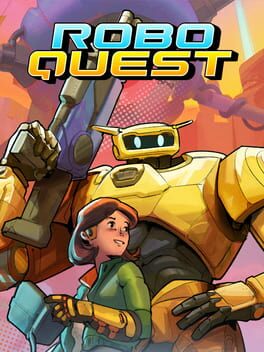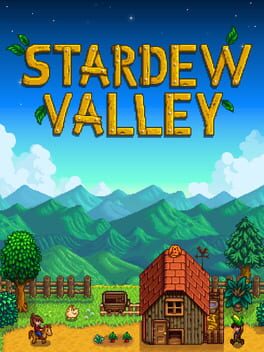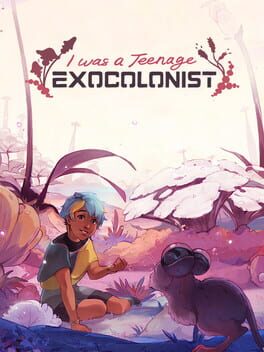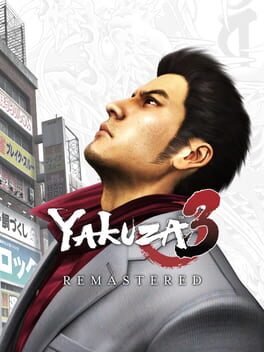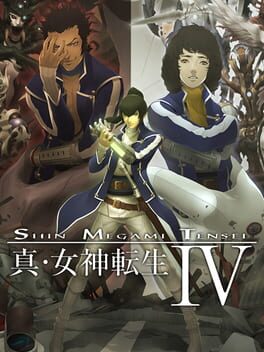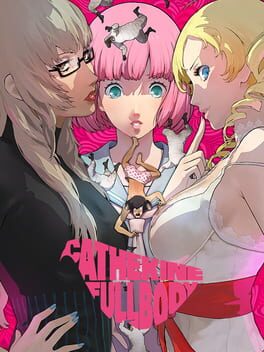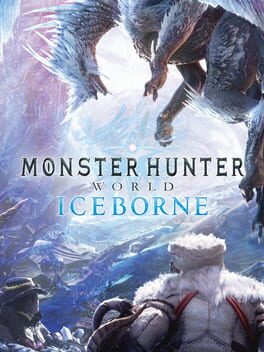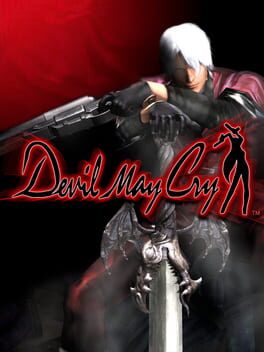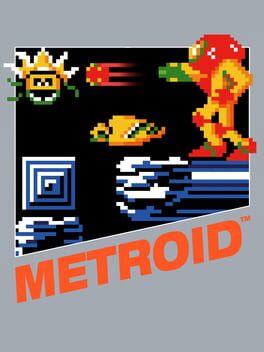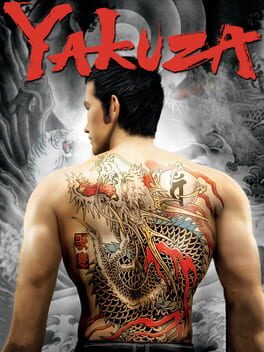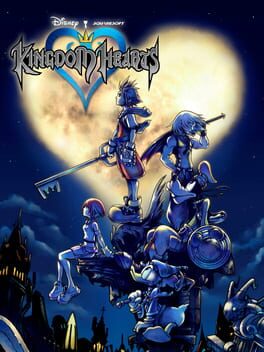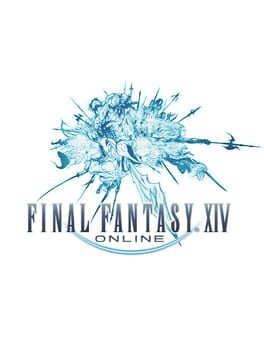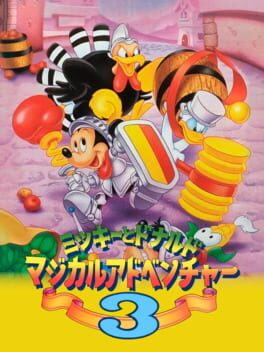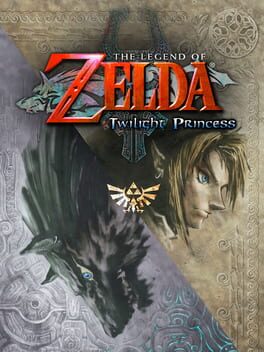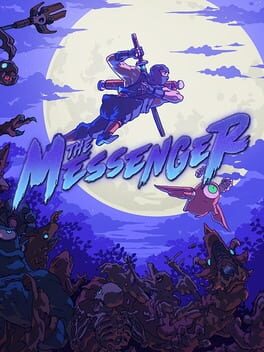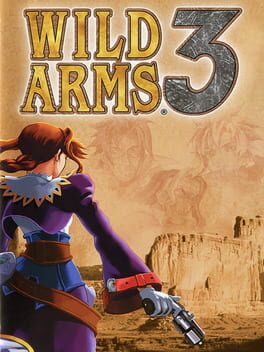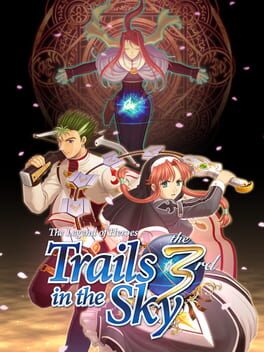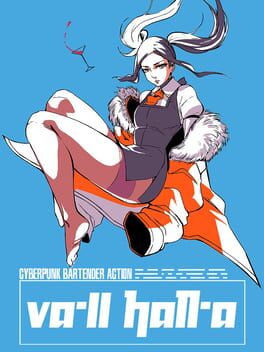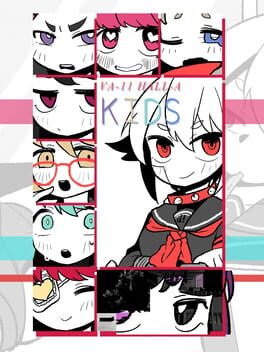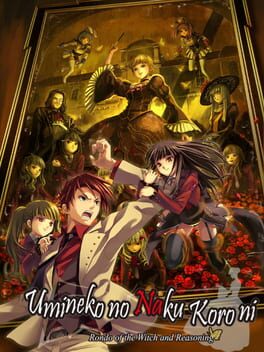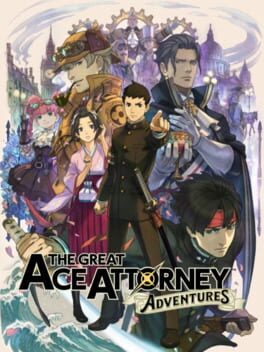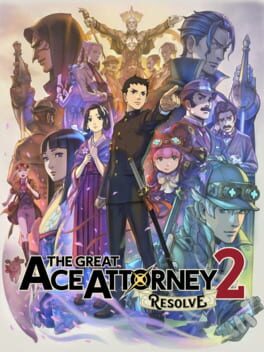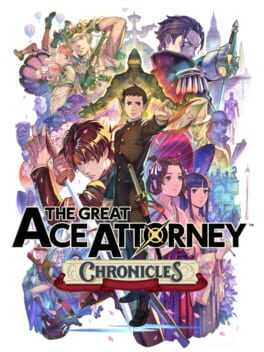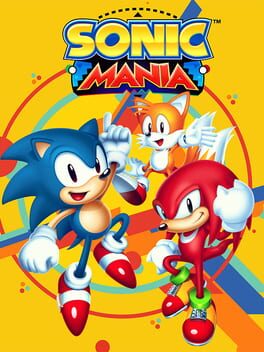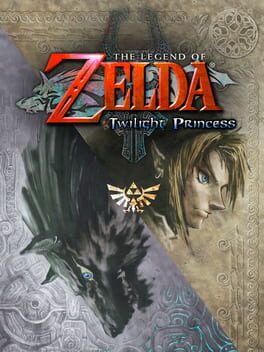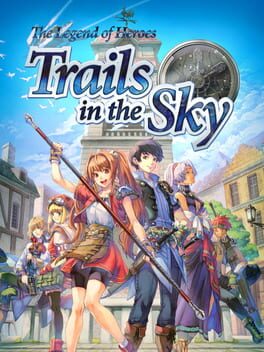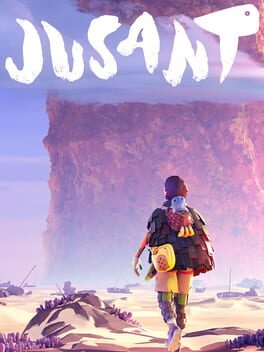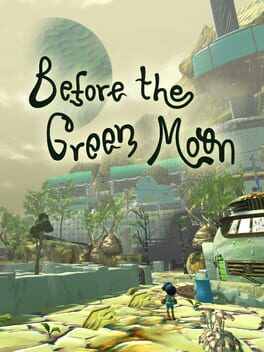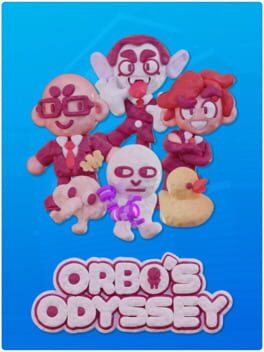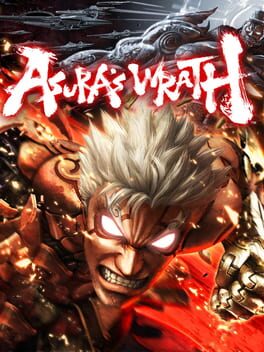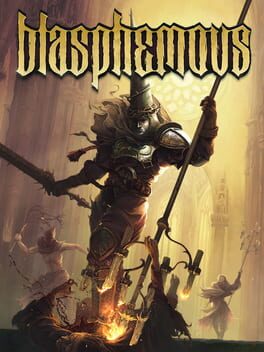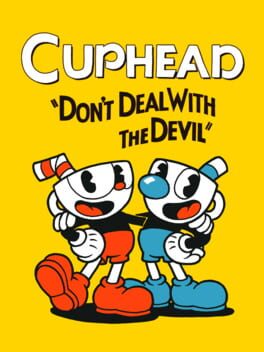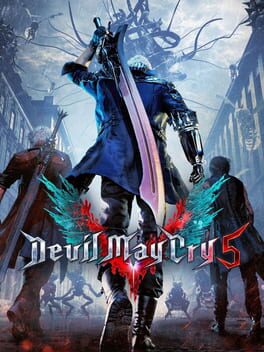TheMightySpork
51 reviews liked by TheMightySpork
A genuinely magical game that’s kept me thinking about it and will continue having this grip on me for quite some time. Games that utilise the medium to such an extent that their identity hinges on the interactive element being present are some of the most fun ones to let sit with you, and this is one of my favourite instances of it. Return of the Obra Dinn is one of the greatest mystery games I’ve played and a lot of this is owed to the structure of the game, forgoing crafting a mystery specifically designed to surprise the player with its various twists and instead laying it all out bare and forcing you to pick everything apart to fully grasp the finer details of things. The mystery and story themselves are not the important aspects here, it’s just trying to immerse you into the role of a detective without any handholding beyond the bare essentials, and it does so perfectly.
Return of the Obra Dinn is a mystery/puzzle game that revolves around incomplete information and assumption, often leaving little to no definitive evidence and forcing you to jump all around to place with increasingly tenuous lines of logic as you feel yourself going insane. It was quite funny taking a step back after combing through a few scenes in excruciating detail and just thinking “wow, this is deranged” but that’s just how the game is. The player is likely to find all of the story beats of the game rather early on without knowing the fates of the vast majority of the cast, and then the rest of the game boils down to going between the relevant scenes in the game to try and figure out how to deduce some of them, which would seem like an experience that would feel stagnant very quickly, but is saved due to the sense of progression that will take place despite it all just looking like cleanup at first. The progression gates in this game are entirely dependent on and driven by the player, hinging on multiple big realisations on how they need to approach their investigations. This culminates in a deeply rewarding loop of thinking that you’ve hit the logical endpoint of what you achieve on your own, before realising a new detail that leads you down a new line of logic to discover someone, and then applying this newfound understanding of how to figure something out to other characters. A contributing factor to how this is so successful is due to the plethora of approaches that you’re expected to work out, sometimes really being as simple but uncertain feeling as “this guy hangs around this other guy a lot, they’re probably in the same field”.
The way that your answers are confirmed is a clever way of limiting the ability to brute force a lot of puzzle answers as well, since you’ve only got confirmation on whether you’re correct or not once you have 3 correct answers simultaneously written down. While some amount of guesswork was an expected element of this game’s design, by structuring it like this, players are still forced to confidently deduce 2 other people before they can start taking real shots in the dark with incomplete assumptions, solving a problem I’ve seen time and time again in deduction games where people will often resort to total guesswork the moment they’re met with some confusion and uncertainty. The presentation goes a long way in tying everything together as well, being visually striking while having the effect of being simple enough to make the important details easier to pinpoint while simultaneously obscuring everything just enough to invite uncertainty into every observation. I adore whenever a game can keep me thinking for so long after I’m done with it, and I love it even more when it does so through something as esoteric as it is here. Total masterpiece, something new to add to my list of favourites.
Return of the Obra Dinn is a mystery/puzzle game that revolves around incomplete information and assumption, often leaving little to no definitive evidence and forcing you to jump all around to place with increasingly tenuous lines of logic as you feel yourself going insane. It was quite funny taking a step back after combing through a few scenes in excruciating detail and just thinking “wow, this is deranged” but that’s just how the game is. The player is likely to find all of the story beats of the game rather early on without knowing the fates of the vast majority of the cast, and then the rest of the game boils down to going between the relevant scenes in the game to try and figure out how to deduce some of them, which would seem like an experience that would feel stagnant very quickly, but is saved due to the sense of progression that will take place despite it all just looking like cleanup at first. The progression gates in this game are entirely dependent on and driven by the player, hinging on multiple big realisations on how they need to approach their investigations. This culminates in a deeply rewarding loop of thinking that you’ve hit the logical endpoint of what you achieve on your own, before realising a new detail that leads you down a new line of logic to discover someone, and then applying this newfound understanding of how to figure something out to other characters. A contributing factor to how this is so successful is due to the plethora of approaches that you’re expected to work out, sometimes really being as simple but uncertain feeling as “this guy hangs around this other guy a lot, they’re probably in the same field”.
The way that your answers are confirmed is a clever way of limiting the ability to brute force a lot of puzzle answers as well, since you’ve only got confirmation on whether you’re correct or not once you have 3 correct answers simultaneously written down. While some amount of guesswork was an expected element of this game’s design, by structuring it like this, players are still forced to confidently deduce 2 other people before they can start taking real shots in the dark with incomplete assumptions, solving a problem I’ve seen time and time again in deduction games where people will often resort to total guesswork the moment they’re met with some confusion and uncertainty. The presentation goes a long way in tying everything together as well, being visually striking while having the effect of being simple enough to make the important details easier to pinpoint while simultaneously obscuring everything just enough to invite uncertainty into every observation. I adore whenever a game can keep me thinking for so long after I’m done with it, and I love it even more when it does so through something as esoteric as it is here. Total masterpiece, something new to add to my list of favourites.
Roboquest
2020
One of the best FPS Roguelites I've played. Roboquest has the feeling of a Halo game, with the aesthetics of Borderlands/Hi-Fi Rush with a neat little Mega Man premise. A great recipe that is kind of held back by being a rogue-lite.
I love Robots, I love this artsyle, I love great movement , upgrades, choices of classes. This game has it all. It's what you expect from roguelites; Random weapon drops, procedural levels and permadeath with small incremental upgrades.
The gameplay is very good, and if it weren't for the satisfying gunplay, sexy doom-like movement, great aesthetics, this would be just another FPS roguelike in a sea of roguelite indies.
I had my fun with it but I don't have the patience to finish roguelites these days unless you are Shovel Knight Dig or Enter the Gungeon. I may pick it up again one day to complete it as I did really like this one.
I love Robots, I love this artsyle, I love great movement , upgrades, choices of classes. This game has it all. It's what you expect from roguelites; Random weapon drops, procedural levels and permadeath with small incremental upgrades.
The gameplay is very good, and if it weren't for the satisfying gunplay, sexy doom-like movement, great aesthetics, this would be just another FPS roguelike in a sea of roguelite indies.
I had my fun with it but I don't have the patience to finish roguelites these days unless you are Shovel Knight Dig or Enter the Gungeon. I may pick it up again one day to complete it as I did really like this one.
Hollow Knight
2017
When I first tried Hollow Knight five years ago, I bounced off it hard. I had not yet known the sweet embrace of Dark Souls. Although I did enjoy a platformer and the occasional metroidvania, the rhythm of this game's combat did not match the beat of my heart, nor did its by-the-book early traversal quicken my pulse. I didn't make it deep enough to even begin to meet the dramatis personae. I just set it down intending never to pick it back up.
That same heart, in the intervening years, grew to love From Software's oeuvre. This love has much to do with why I did eventually return, although not perhaps for the reasons you'd expect. Although Hollow Knight borrows some formal aspects from those games, most notably the bench/shade mechanic and a preoccupation with boss fights, it is on the whole more different than it is similar. And every time I've tried to dip my toe into a game because it's "like Dark Souls", I've walked away shaking my head and mourning designers' inability to learn the right lessons. That was never going to be my reason for playing this.
To understand the true reason, you must first understand what happened after FromSoft stole my heart. I played through all the games in reverse, from Sekiro to Demon's Souls, then wept for there were no more worlds to conquer. But to my friends, these paths were as yet untrodden. I would tune into their streams in vicarious delight as they first saw sights that I now knew so well. And on rare and precious occasion, a friend would ask me to take their hand and guide them through a game entire, the voice in their ear every step of the way.
I joined the journey of one friend in particular through Lordran, from believing these games were fundamentally Too Hard for them to beating the DLC bosses so fast it put the sickest Os in the group chat to shame. Playing together as learner and guide made us better friends and gave them a new perspective on their own skill broader than any video game. At the end, they told me, "I want to teach you to love Hollow Knight like you taught me to love Dark Souls". Now you understand: I had to return to this game.
So I picked Hollow Knight back up, started a new save, and began again. To be sure, after half a decade of honing my action game skills, I was far more proficient than I was before. Although the core mechanics are vastly different than a FromSoft 3D slash-and-roll, my skills transferred plenty well. I knocked out bosses quickly enough to leave Sable as dumbstruck as they had left me. But the real difference, the reason I'm wholeheartedly giving this game five stars now when I didn't even care to finish it before, was Sable. (And Sam! Another friend who was not as omnipresent, but who popped in frequently enough to substantially shape my impression of the game as well.)
Their infectious affection unlocked for me everything there is to love about Hollow Knight. With their encouragement I slipped quickly through the early game and found that the meat of it was indeed good. I could appreciate in fullness the personality of the various characters met through the game, their foibles and their tragedies. I could enjoy the environment design, have fun playing around with various builds, and really sink my teeth into bosses.
The boss design, once it gets challenging, is fascinating. Each boss has a relatively small set of moves, and the effective answers to them are highly technical combinations of movement and attacks. The emphasis is less on finding an opening and more on learning to sneak in hits while you evade. On the other hand, because you rebuild "soul" for healing while hitting the boss, in principle if you can find a hit/heal loop however inefficient you can just run it indefinitely even with imperfect play. The bosses then have to be designed around this, giving increasingly few chances to heal at all as they get more difficult but also taking quite few hits relative to, say, a Dark Souls boss.
Perhaps the place where Hollow Knight draws most from From's playbook is its plot: intricate and mournful but always a background presence, relegated to fragments of text with vague allusions and the occasional brief onscreen interaction. It must be easy to beat this game without understanding it at all, so once again I'm grateful to the guidance I had—just enough to draw my attention to key moments and answer the occasional question, never so much to shatter my nascent understanding with too explicit an explanation.
The story works so well precisely because it's understated. It's a collage of moods of which you see fragments, which the game asks you to connect yourself, to see the tendrils intertwine between what it has to say about parents and childhood, about duty and choice, about love and emptiness. It's a story in which can reflect much about what the player brings to it while still holding its own themes strong, not simply conforming to the reader's views. It's beautiful in that way.
I do have my complaints about Hollow Knight. I actually have kind of a lot of complaints. It's very clearly Team Cherry's freshman effort, full of little design flaws—why does it fire a spell if you press B to leave the menu and leave it down a little too long? why do you have to juggle charm notches just to see where you are on the map? why can't you see the world map in the fast travel screen?—that routinely drive me up a wall. But they're all small, and the ones that aren't fixable with mods are easy enough to simply ignore. And even for this, having a friend around helped. I am, after all, a huge believer in the healing power of bitching about stuff that annoys you.
Sable, since I know you'll read this: You did it. You taught me to love Hollow Knight. Thanks to you, I now have strong opinions about bug ghosts and spider/bee cross-species adoption. Dung beetles make me sad now and it's all your fault. I am changed irrevocably. Thank you.
Stardew Valley
2016
Stardew Valley feels like coming home.
I can't remember which playthrough I'm on, which is a rarity for me. I've revisited childhood favorites like Zelda and Mario countless times, cherishing each experience. However, as an adult, this happens less frequently. Maybe it's because modern games don't resonate with me as deeply, or maybe my gaming habits have simply changed over time. Yet, whenever I boot up Stardew Valley, it hits all the right notes. Whether I've talked with the residents of Pelican Town dozens of times or played through its events repeatedly, the game retains its magical allure. It feels like a nostalgic return to childhood gaming, a comforting experience I can enjoy every time of the year.
What's truly remarkable is the developer's commitment to continually expanding the game with substantial updates and expansions, all provided for free. Stardew Valley brims with passion and love. Despite its status as one of the most successful indie games of all time, the developer continues to pour his heart into it, enriching the experience for players. I deeply respect and appreciate this dedication, which unfortunately is no longer a given in today's gaming industry.
I could honestly ramble endlessly about this masterpiece of a game. Nearly a decade after my first playthrough, it still holds a special place in my heart and it probably always will.
I can't remember which playthrough I'm on, which is a rarity for me. I've revisited childhood favorites like Zelda and Mario countless times, cherishing each experience. However, as an adult, this happens less frequently. Maybe it's because modern games don't resonate with me as deeply, or maybe my gaming habits have simply changed over time. Yet, whenever I boot up Stardew Valley, it hits all the right notes. Whether I've talked with the residents of Pelican Town dozens of times or played through its events repeatedly, the game retains its magical allure. It feels like a nostalgic return to childhood gaming, a comforting experience I can enjoy every time of the year.
What's truly remarkable is the developer's commitment to continually expanding the game with substantial updates and expansions, all provided for free. Stardew Valley brims with passion and love. Despite its status as one of the most successful indie games of all time, the developer continues to pour his heart into it, enriching the experience for players. I deeply respect and appreciate this dedication, which unfortunately is no longer a given in today's gaming industry.
I could honestly ramble endlessly about this masterpiece of a game. Nearly a decade after my first playthrough, it still holds a special place in my heart and it probably always will.
I’m a big proponent of the idea that “limitations breed creativity.” That’s part of the reason I love indie games so much! Gorgeous photorealistic graphics and hundreds of hours of gameplay are all well and good, but with a low budget comes a willingness to experiment, to be rough around the edges in a way that connects with its target audience with a specificity that something with a bigger budget could never manage. That ambition is what I see most in I Was a Teenage Exocolonist.
IWATE is, first and foremost, a coming-of-age story. Mechanically and thematically I’d liken this game to Citizen Sleeper, but unlike that game which takes place over a couple months, IWATE is set over the course of 10 years. Your protagonist, Sol, is only 10 years old when their spaceship, the Stratos, arrives on the alien planet Vertumna. In this new and dangerous world, Sol navigates their teen years alongside the foundation of their colony.
The breadth of IWATE’s themes is astounding. The inter- and intrapersonal journeys had while growing up juxtapose the material conditions of the colony and their settlement in new territory, with environmentalism and colonization being the primary ethical issues explored. As a teenager, when can we trust authority? As a civilian, when can we trust those in charge? What do we do when those stupid, no-good, bossy adults are the ones waging war? What about when community leaders neglect the needs of the next generation they’re meant to foster? Being a teenager is hard, but try going through puberty and adolescence in the uncharted alien wilderness. Through these topics and more, IWATE masterfully weaves together sci-fi and coming-of-age into something greater than the sum of its parts.
\\ (The following section has minor spoilers.)
During your first playthrough, you eventually learn that Sol is in a time loop. This is, in part, a diegetic justification for New Game+; it’s not like, say, Undertale, where the true story can only be unearthed through repeat playthroughs. If you’re satisfied, you can put down IWATE after your first playthrough. But you’d be missing out on a lot.
For Sol, this time loop is a blessing, not a curse. IWATE holds a great love and empathy for humanity and our potential. You can’t do everything in a single playthrough. There’s no “Golden” end, where you max out every stat, befriend everyone, and lead everyone to a perfect tomorrow. Instead, you’re encouraged to construct the lives Sol could lead, the different people they could grow up to be. Each life is equally as valid as the next. What role will you play for your community?
\\ (Spoilers end here.)
Of course, it’s only natural that IWATE falls into some pitfalls with its limitations. The more choices there are for a player to make, the more choices there are that need to be accounted for. I wish there were more ways for characters to die, I wish there were more unique endings instead of career endings, I wish romance didn’t fade into the background after you’ve gotten into a relationship. I wish the team had more resources to really flesh out everything I’ve mentioned and more. But if they had had those resources from the start, would I Was a Teenage Exocolonist exist? Limitation breeds creativity, after all.
I’ve played through IWATE twice, and I plan to play it many more times in the future. It’s ambitious and its breadth of scope is breathtaking. I haven’t discovered everything and I don’t think I ever will, but it’s that sense of infinite possibility that compels me to see what else I Was a Teenage Exocolonist has to offer.
“The child you were will not return.”
IWATE is, first and foremost, a coming-of-age story. Mechanically and thematically I’d liken this game to Citizen Sleeper, but unlike that game which takes place over a couple months, IWATE is set over the course of 10 years. Your protagonist, Sol, is only 10 years old when their spaceship, the Stratos, arrives on the alien planet Vertumna. In this new and dangerous world, Sol navigates their teen years alongside the foundation of their colony.
The breadth of IWATE’s themes is astounding. The inter- and intrapersonal journeys had while growing up juxtapose the material conditions of the colony and their settlement in new territory, with environmentalism and colonization being the primary ethical issues explored. As a teenager, when can we trust authority? As a civilian, when can we trust those in charge? What do we do when those stupid, no-good, bossy adults are the ones waging war? What about when community leaders neglect the needs of the next generation they’re meant to foster? Being a teenager is hard, but try going through puberty and adolescence in the uncharted alien wilderness. Through these topics and more, IWATE masterfully weaves together sci-fi and coming-of-age into something greater than the sum of its parts.
\\ (The following section has minor spoilers.)
During your first playthrough, you eventually learn that Sol is in a time loop. This is, in part, a diegetic justification for New Game+; it’s not like, say, Undertale, where the true story can only be unearthed through repeat playthroughs. If you’re satisfied, you can put down IWATE after your first playthrough. But you’d be missing out on a lot.
For Sol, this time loop is a blessing, not a curse. IWATE holds a great love and empathy for humanity and our potential. You can’t do everything in a single playthrough. There’s no “Golden” end, where you max out every stat, befriend everyone, and lead everyone to a perfect tomorrow. Instead, you’re encouraged to construct the lives Sol could lead, the different people they could grow up to be. Each life is equally as valid as the next. What role will you play for your community?
\\ (Spoilers end here.)
Of course, it’s only natural that IWATE falls into some pitfalls with its limitations. The more choices there are for a player to make, the more choices there are that need to be accounted for. I wish there were more ways for characters to die, I wish there were more unique endings instead of career endings, I wish romance didn’t fade into the background after you’ve gotten into a relationship. I wish the team had more resources to really flesh out everything I’ve mentioned and more. But if they had had those resources from the start, would I Was a Teenage Exocolonist exist? Limitation breeds creativity, after all.
I’ve played through IWATE twice, and I plan to play it many more times in the future. It’s ambitious and its breadth of scope is breathtaking. I haven’t discovered everything and I don’t think I ever will, but it’s that sense of infinite possibility that compels me to see what else I Was a Teenage Exocolonist has to offer.
“The child you were will not return.”
Yakuza 3 Remastered
2018
From the moment you start Yakuza 3, something is troubling. You likely follow suite to Kiwami 2, and now Kiryu controls like an RC Car and the game tries to retcon his closest companion. Is it over? No. All a facade. We're just getting started. Let's start with the less obvious first, I love the combat. It provides the perfect amount of challenge and really rewards the bold and the cunning. Enemies not being HP sponges would cement my love for it, but huh, whoops.
Okinawa is a great location so I would allot more time there if I could. But to my own surprise, I decided to not do the substories. Well, I did a few, but I was so enthralled by the story. Playing as the dad to my big ass family? Yes, waiter, bring me more of this. The yakuza side of things was more lowkey, toned down bullshit explosions in favor of politics, with stakes still high and, like Ryuji, a villain I want to stick around, but absolutely deserve punishment for their actions. There's one scene though, badass but definitely goofy, that definiely was a load of bull. Cried at the end I still did.
Kiwami 3 would go very hard with the treatment Majima got in Kiwami 2 given to the character that failed the vibe check and was sent to Ohio at the start. Trying to be vague here. Opportunity for RGG to try their hand at another non-japanese location. Yes I'm an hypocrite, Im always the first one to say I'm tired of games taking place in the USA. I've been baka may your fists mitai my face for your own gratification.
Okinawa is a great location so I would allot more time there if I could. But to my own surprise, I decided to not do the substories. Well, I did a few, but I was so enthralled by the story. Playing as the dad to my big ass family? Yes, waiter, bring me more of this. The yakuza side of things was more lowkey, toned down bullshit explosions in favor of politics, with stakes still high and, like Ryuji, a villain I want to stick around, but absolutely deserve punishment for their actions. There's one scene though, badass but definitely goofy, that definiely was a load of bull. Cried at the end I still did.
Kiwami 3 would go very hard with the treatment Majima got in Kiwami 2 given to the character that failed the vibe check and was sent to Ohio at the start. Trying to be vague here. Opportunity for RGG to try their hand at another non-japanese location. Yes I'm an hypocrite, Im always the first one to say I'm tired of games taking place in the USA. I've been baka may your fists mitai my face for your own gratification.
i dunno, let's keep this quick. to say it's a bit clumsy is an understatement - and there are certainly aspects of the overall narrative i struggle with - but the depths of its sincerity won me over. i have no particular attachment to yakuza 7 either, and in fact i find much of that game to be very awkward, stilted, and grating so ultimately no one's more stunned than myself here.
when it's not luxuriating in this chilled-out ocean's twelve vibe which i loved, infinite wealth is written with far more intentionality and consideration than most entries in the series; while one might accuse of it of verging on threadbare or cloying for its strict emphasis on theme, i think the game trusts its audience to take some of the emotional leaps necessary to make the storytelling work. character writing for the leads and the party members has seen a dramatic improvement across the board. ichiban as usual brings a lot of levity to the table - thankfully none of it quite as irritating in the zany sense as 7 liked to employ - but kiryu's portions of the game are comparatively sobering. collecting memoirs has a weird psychological effect at times but the series has earned the right to do this by this point given how much of the kiryu saga can feel siloed or compartmentalized - in the same vein as gaiden, the game almost damns him for this, for never taking a chance to stop and reflect, for the consequences of his interminable martyr complex
that tendency to bury the past is only contrasted further by infinite wealth being maybe the most direct sequel the series has seen yet - the events of that game are still fresh in everyone's mind and sets the stage for the overarching conflict and everyone's investment in said conflict. it's a surprisingly natural extension of a lot of 7's themes, and i found it worked better for me this time. 7 often felt more gestural than anything else - to me it balanced far too much as this metaphorical (and literal) tearing down of the old ways, handling the introduction of a new protagonist, paying lipservice to series veterans and setting up parallels to the original ryu ga gotoku. infinite wealth to me feels more fully-formed, more confident; i think the team was able to use this title's unique hook and premise to really bring the most out of 7s promise of something new, and it could only have achieved it by taking the time to reflect on the past.
to this end: they made the game a JRPG this time, that counts for something. and not just a JRPG but one that feels as close to traditional RGG action as possible. some excellent systems this time with a lot of fascinating interplay and the level curve is fantastic. not necessary to sum up all the changes, you've seen them, but they really promote a lot of dynamic decision-making with respect to positioning and once you figure out how status effects can correlate with them you feel like your third eye's opening. very fond memories here of navigating around a crowd of enemies - some of whom have been put to sleep - and figuring out how best to maximize damage without waking anyone drowsy up. lots more strategy and enjoyment to be had here than pretty much anywhere in 7.
that said, i know RGG prides themselves on the statistics relating to players completing their titles, but they could really afford to take a few more risks with enemy waves in the main campaign. i felt like my most interesting encounters were usually street bosses or main story bosses, but the main campaign's filled with trash mobs. and i'm not saying every fight has to be some tactician's exercise - in fact i think that's the opposite of what people actually would enjoy - but i really wish the game took the time to play around even more with positioning. there are some exciting scenarios in the game that are too few and far in-between. stages that split up the party, encounters with unique mechanics...would really liked to have seen more in that vein.
some extra notes - would like to dig a bit deeper into the strengths of the narrative as well as some additional hangups but i can't be assed to write more
- honolulu's great, it gets probably a little too big for its own good but it's a real breath of fresh air for most of the game
- yamai is the best new character they've introduced in years
- dondoko island feels like a classic yakuza minigame in the best possible way, might even represent the apex of this kind of design. not obscenely grindy but just something casual and comfortable with enough layers to dig into without being overwheming and enough versatility to express yourself. shame you can't really say the same for sujimon!
- kiryu's party is disarmingly charming and they have some insanely good banter
- despite what some have said, i think this is a good follow-up to gaiden. it's not explicit about it but this is still very much a reckoning with kiryu's character and his mentality; it is every bit as concerned and preoccupied with the series mythos, the core ideas and conflicts driving a lot of installments
- honestly found the pacing to be on-par for the average RGG title if not better. i can concede that the dondoko island introduction was a bit too long but that is the most ground i can afford. if we can accept y5 into our hearts we can accept infinite wealth; IW makes y5 look deranged for its intrusiveness despite both titles occupying a similar length. if any of it registers as an actual problem, i think people would benefit from revisiting yakuza 7 to find it is almost exactly the same structurally if not worse
- IW is home to maybe the best needle drop in the medium
- played in japanese, like i usually do, so no real interest in commenting on the english dub since it's not real to me but i will say that what i listened to seemed like a bit of a step back from the dub quality in previous RGG games. yongyea isn't a convincing kiryu either and while i could be a bit more of a hater here all i will say is there is a STAGGERING whiplash involved in casting a guy like that as the lead in a game with themes like this. in a grouchier mood, i think it would genuinely be a bit difficult to look past this and it does leave me feeling sour, but ultimately the dub doesn't reflect my chosen means of engaging with the title and it never will
- what is difficult to look past is the game's DLC rollout, which arbitrarily gates higher difficulties, new game +, and a postgame dungeon. i acquired these through dubious means (which i highly recommend you also do) so i feel confident in saying they're really not at all worth the money unless you had a desire to spend more time in this world, but what a colossal and egregious failure to price it in this fashion. new game + specifically has tons of bizarre issues that make me believe a revision of some kind was necessary.
- you will not regret downloading this mod that removes the doors in dungeons
long story short, ryu ga gotoku's journey began in 2005 with a simple motif: to live is to not run away. so much of infinite wealth is about taking that notion to its furthest extent. it couldn't have possibly hit at a better time for me. at times it might be a classic case of this series biting off a bit more than it can chew for a sequel, but i don't think there's anything you can reliably point to that would make me think this is one step forwards, two steps back.
also awesome to have a game that posits that hawaii is filled with the fire monks from elden ring and then you have to travel to the resident evil 4 island to beat them up
when it's not luxuriating in this chilled-out ocean's twelve vibe which i loved, infinite wealth is written with far more intentionality and consideration than most entries in the series; while one might accuse of it of verging on threadbare or cloying for its strict emphasis on theme, i think the game trusts its audience to take some of the emotional leaps necessary to make the storytelling work. character writing for the leads and the party members has seen a dramatic improvement across the board. ichiban as usual brings a lot of levity to the table - thankfully none of it quite as irritating in the zany sense as 7 liked to employ - but kiryu's portions of the game are comparatively sobering. collecting memoirs has a weird psychological effect at times but the series has earned the right to do this by this point given how much of the kiryu saga can feel siloed or compartmentalized - in the same vein as gaiden, the game almost damns him for this, for never taking a chance to stop and reflect, for the consequences of his interminable martyr complex
that tendency to bury the past is only contrasted further by infinite wealth being maybe the most direct sequel the series has seen yet - the events of that game are still fresh in everyone's mind and sets the stage for the overarching conflict and everyone's investment in said conflict. it's a surprisingly natural extension of a lot of 7's themes, and i found it worked better for me this time. 7 often felt more gestural than anything else - to me it balanced far too much as this metaphorical (and literal) tearing down of the old ways, handling the introduction of a new protagonist, paying lipservice to series veterans and setting up parallels to the original ryu ga gotoku. infinite wealth to me feels more fully-formed, more confident; i think the team was able to use this title's unique hook and premise to really bring the most out of 7s promise of something new, and it could only have achieved it by taking the time to reflect on the past.
to this end: they made the game a JRPG this time, that counts for something. and not just a JRPG but one that feels as close to traditional RGG action as possible. some excellent systems this time with a lot of fascinating interplay and the level curve is fantastic. not necessary to sum up all the changes, you've seen them, but they really promote a lot of dynamic decision-making with respect to positioning and once you figure out how status effects can correlate with them you feel like your third eye's opening. very fond memories here of navigating around a crowd of enemies - some of whom have been put to sleep - and figuring out how best to maximize damage without waking anyone drowsy up. lots more strategy and enjoyment to be had here than pretty much anywhere in 7.
that said, i know RGG prides themselves on the statistics relating to players completing their titles, but they could really afford to take a few more risks with enemy waves in the main campaign. i felt like my most interesting encounters were usually street bosses or main story bosses, but the main campaign's filled with trash mobs. and i'm not saying every fight has to be some tactician's exercise - in fact i think that's the opposite of what people actually would enjoy - but i really wish the game took the time to play around even more with positioning. there are some exciting scenarios in the game that are too few and far in-between. stages that split up the party, encounters with unique mechanics...would really liked to have seen more in that vein.
some extra notes - would like to dig a bit deeper into the strengths of the narrative as well as some additional hangups but i can't be assed to write more
- honolulu's great, it gets probably a little too big for its own good but it's a real breath of fresh air for most of the game
- yamai is the best new character they've introduced in years
- dondoko island feels like a classic yakuza minigame in the best possible way, might even represent the apex of this kind of design. not obscenely grindy but just something casual and comfortable with enough layers to dig into without being overwheming and enough versatility to express yourself. shame you can't really say the same for sujimon!
- kiryu's party is disarmingly charming and they have some insanely good banter
- despite what some have said, i think this is a good follow-up to gaiden. it's not explicit about it but this is still very much a reckoning with kiryu's character and his mentality; it is every bit as concerned and preoccupied with the series mythos, the core ideas and conflicts driving a lot of installments
- honestly found the pacing to be on-par for the average RGG title if not better. i can concede that the dondoko island introduction was a bit too long but that is the most ground i can afford. if we can accept y5 into our hearts we can accept infinite wealth; IW makes y5 look deranged for its intrusiveness despite both titles occupying a similar length. if any of it registers as an actual problem, i think people would benefit from revisiting yakuza 7 to find it is almost exactly the same structurally if not worse
- IW is home to maybe the best needle drop in the medium
- played in japanese, like i usually do, so no real interest in commenting on the english dub since it's not real to me but i will say that what i listened to seemed like a bit of a step back from the dub quality in previous RGG games. yongyea isn't a convincing kiryu either and while i could be a bit more of a hater here all i will say is there is a STAGGERING whiplash involved in casting a guy like that as the lead in a game with themes like this. in a grouchier mood, i think it would genuinely be a bit difficult to look past this and it does leave me feeling sour, but ultimately the dub doesn't reflect my chosen means of engaging with the title and it never will
- what is difficult to look past is the game's DLC rollout, which arbitrarily gates higher difficulties, new game +, and a postgame dungeon. i acquired these through dubious means (which i highly recommend you also do) so i feel confident in saying they're really not at all worth the money unless you had a desire to spend more time in this world, but what a colossal and egregious failure to price it in this fashion. new game + specifically has tons of bizarre issues that make me believe a revision of some kind was necessary.
- you will not regret downloading this mod that removes the doors in dungeons
long story short, ryu ga gotoku's journey began in 2005 with a simple motif: to live is to not run away. so much of infinite wealth is about taking that notion to its furthest extent. it couldn't have possibly hit at a better time for me. at times it might be a classic case of this series biting off a bit more than it can chew for a sequel, but i don't think there's anything you can reliably point to that would make me think this is one step forwards, two steps back.
also awesome to have a game that posits that hawaii is filled with the fire monks from elden ring and then you have to travel to the resident evil 4 island to beat them up
Catherine: Full Body
2019
I really loved Catherine Classic, which is why I decided to grab Full Body on an eShop sale that was just about to end, so I could compare the two releases back-to-back (and since I was eager to see how Rin fits into the story). After beating the game's new route, I'm glad Full Body lived up to my expectations. But now the real question: Is this version the definitive release of Catherine? Probably.
I'll try to not repeat myself on the things I already established in my Catherine Classic review and will be going over the additions in Full Body instead, starting with the rerelease's poster girl - Rin. Since she's advertised as a third possible love interest, I expected her to be a lot more involved into the original storyline than she actually is, but I ended up liking the role they gave her there. Rin never actually interferes with the story events of Classic, the major beats still play out all the same. She's a pretty passive character if you don't actively pursue her route and serves more of a supporting character if you're heading down the Classic Routes. Even as such a supporting character, I believe Rin plays a pretty big role in shifting the tone of the game compared to Catherine Classic. The original game was quite gloomy and Full Body contrasts this by adding her to balance it out, resulting in the game feeling more laid-back overall. This is accomplished with the lighting changes in the bar and a new jazzy rendition of the bar soundtrack. Speaking of the bar soundtrack, many of the Shin Megami Tensei songs on the jukebox were replaced with modern Persona tracks, including some really great ones like Beneath the Mask from Persona 5 or Snowflakes from Persona 4.
As far as gameplay changes go, Full Body doubles the amount of puzzles and adds a mode to skip those entirely (if you're only in for the story). The new Remix mode is a great change of pace (especially if you're coming from Classic), since it adds various kinds of Tetris blocks to the puzzles, changing their solutions from the original game. Some of the smaller gameplay tweaks like the backwards camera or outlines for ledges just make the game more enjoyable to play overall. The undo and retry system has been completely overhauled, the collectable pillows no longer give you a set amount of retries, instead you'll get a singular undo action added to the "undo queue". Like in normal mode you start with 3 undos at the beginning, but if you collect a pillow during a level you can actually undo your actions 4 times in a row until you reach the pedestal. I think it's a pretty good incentive to collect pillows now, since I basically had 99 lives all the time by the end of Classic and there was no real reason to go out of my way to get them anymore. However, the lives system has been removed entirely in Full Body and you can no longer die unless you run out of undos. While this sounds like it entirely trivializes the game, it really doesn't and just lessens your frustration of having to restart a level for a single misinput. I had multiple cases where I had to retry from the start of a level, since I tried some strategy that didn't work out in the end and I had no undos left to return the blocks to their initial state. It's also worth mentioning that the undos can no longer be abused to reset the combo timer, so you'll actually have to watch out for that if you're going for a Golden rating. Overall, I believe those balance changes alone make Full Body better in the gameplay department than Classic (despite Classic feeling so great already) and I could actually enjoy the final boss in this version, since I didn't have keep worrying about some random homing attack, just to die with the pedestal in sight already (yeah that actually happened to me in Classic). Although I must admit that the tension is definitely not on the same heights as the original here, the dread of having to restart the entire level if you took a wrong turn was really something special...
Full Body's narrative is pretty much the same as in Classic (unless you go for Rin's Route), but with new cutscenes and pictures to help the characterization of the original girls. Personally I think it helped Katherine's characterization especially and I found myself looking forward to the flashbacks involving her and Vincent each time. Sure, that's pretty neat, but Rin's Route is the part that actually impacts how the story plays out. Contrary to popular belief I found the handling of the themes in this route fairly good executed and had a great time with it! There are some really good messages in here. A common complaint is that this route goes a little off the rails in the end and I can see how that's offputting for some, but I found her finale to be some pretty cool stuff, especially in regards to the scenery and stakes there. Not everyone's cup of coffee, but a nice bonus after doing the 'ordinary' routes with Katherine and Catherine.
My main complaint about Classic were the transphobic remarks at times, so I'm glad to see Atlus addressed this in Full Body. Most of the transphobic dialogue has been replaced entirely, except that one exchange in Katherine's True Ending for some reason. But considering Full Body feels more modern and progressive in terms of writing, I'd say Atlus is on the right track with those changes, maybe they just forgot to remove that very specific conversation in that ending. You know the meme that goes "He's a little confused, but he got the spirit"? That's Atlus with this game.
Unfortunately my time with Catherine in general has come to an end (unless I decide to tackle the Babel levels sometime). I wish people were less negative about it online and embraced the positive aspects more - there's so much to love here. Personally I can only recommend Catherine to fans of puzzle games or Atlus games in general, especially the Full Body version (but you can't go wrong with Classic either if you want the vibes™). This review was particularly fun to write, so thanks for reading!
I'll try to not repeat myself on the things I already established in my Catherine Classic review and will be going over the additions in Full Body instead, starting with the rerelease's poster girl - Rin. Since she's advertised as a third possible love interest, I expected her to be a lot more involved into the original storyline than she actually is, but I ended up liking the role they gave her there. Rin never actually interferes with the story events of Classic, the major beats still play out all the same. She's a pretty passive character if you don't actively pursue her route and serves more of a supporting character if you're heading down the Classic Routes. Even as such a supporting character, I believe Rin plays a pretty big role in shifting the tone of the game compared to Catherine Classic. The original game was quite gloomy and Full Body contrasts this by adding her to balance it out, resulting in the game feeling more laid-back overall. This is accomplished with the lighting changes in the bar and a new jazzy rendition of the bar soundtrack. Speaking of the bar soundtrack, many of the Shin Megami Tensei songs on the jukebox were replaced with modern Persona tracks, including some really great ones like Beneath the Mask from Persona 5 or Snowflakes from Persona 4.
As far as gameplay changes go, Full Body doubles the amount of puzzles and adds a mode to skip those entirely (if you're only in for the story). The new Remix mode is a great change of pace (especially if you're coming from Classic), since it adds various kinds of Tetris blocks to the puzzles, changing their solutions from the original game. Some of the smaller gameplay tweaks like the backwards camera or outlines for ledges just make the game more enjoyable to play overall. The undo and retry system has been completely overhauled, the collectable pillows no longer give you a set amount of retries, instead you'll get a singular undo action added to the "undo queue". Like in normal mode you start with 3 undos at the beginning, but if you collect a pillow during a level you can actually undo your actions 4 times in a row until you reach the pedestal. I think it's a pretty good incentive to collect pillows now, since I basically had 99 lives all the time by the end of Classic and there was no real reason to go out of my way to get them anymore. However, the lives system has been removed entirely in Full Body and you can no longer die unless you run out of undos. While this sounds like it entirely trivializes the game, it really doesn't and just lessens your frustration of having to restart a level for a single misinput. I had multiple cases where I had to retry from the start of a level, since I tried some strategy that didn't work out in the end and I had no undos left to return the blocks to their initial state. It's also worth mentioning that the undos can no longer be abused to reset the combo timer, so you'll actually have to watch out for that if you're going for a Golden rating. Overall, I believe those balance changes alone make Full Body better in the gameplay department than Classic (despite Classic feeling so great already) and I could actually enjoy the final boss in this version, since I didn't have keep worrying about some random homing attack, just to die with the pedestal in sight already (yeah that actually happened to me in Classic). Although I must admit that the tension is definitely not on the same heights as the original here, the dread of having to restart the entire level if you took a wrong turn was really something special...
Full Body's narrative is pretty much the same as in Classic (unless you go for Rin's Route), but with new cutscenes and pictures to help the characterization of the original girls. Personally I think it helped Katherine's characterization especially and I found myself looking forward to the flashbacks involving her and Vincent each time. Sure, that's pretty neat, but Rin's Route is the part that actually impacts how the story plays out. Contrary to popular belief I found the handling of the themes in this route fairly good executed and had a great time with it! There are some really good messages in here. A common complaint is that this route goes a little off the rails in the end and I can see how that's offputting for some, but I found her finale to be some pretty cool stuff, especially in regards to the scenery and stakes there. Not everyone's cup of coffee, but a nice bonus after doing the 'ordinary' routes with Katherine and Catherine.
My main complaint about Classic were the transphobic remarks at times, so I'm glad to see Atlus addressed this in Full Body. Most of the transphobic dialogue has been replaced entirely, except that one exchange in Katherine's True Ending for some reason. But considering Full Body feels more modern and progressive in terms of writing, I'd say Atlus is on the right track with those changes, maybe they just forgot to remove that very specific conversation in that ending. You know the meme that goes "He's a little confused, but he got the spirit"? That's Atlus with this game.
Unfortunately my time with Catherine in general has come to an end (unless I decide to tackle the Babel levels sometime). I wish people were less negative about it online and embraced the positive aspects more - there's so much to love here. Personally I can only recommend Catherine to fans of puzzle games or Atlus games in general, especially the Full Body version (but you can't go wrong with Classic either if you want the vibes™). This review was particularly fun to write, so thanks for reading!
(Logged as a shoe-in for both the base Monster Hunter: World game, and the Iceborne expansion.)
Lavish & deathly exciting at practically all times - varied and expressive social MMO tissue connecting its numerous multi-layered terrariums of gorgeous arenas and silly monsties.
I do have some background with the series, with much history on Freedom Unite, and far less with the fantranslation of Portable 3rd + 3Ultimate at various points through highschool, and hit the credits of Rise. Freedom Unite came packed with FMV cutscenes that demonstrate how the monsters lived in their downtime - characterising the monsters to assure the player that they weren't merely thoughtless models with movesets to memorise, but individual links in the food chain with roles that keep the world biodiverse & strong.
It was always my favourite part of the game, and what felt like the series' missing hook to really sell me on the core conceit was in how this aspect is somewhat downplayed or unexplored.
By God's grace this was the kind of ecological focus MH:W absolutely relishes in. An interlinking tapestry of ecosystems ticking away, living & interacting in countless ways to make the New World feel so gd raw. And it's not just pageantry either, it plays into behaviours and environment interactions from traps to turf wars. So so so good to head out for a simple hunt to watch it blossom into a scrappy mess of tooth & claw, so so so good to go on aimless expedition to a zone and notice a new handful of behaviours from their endemic life. I’d not be able to sleep at night if I didn’t compliment the chefs on all of this, every monster in every zone is given so much purpose it’s inspiring.
One thing this series has always been great at is its environment design - the world of Monster Hunter is a land of plenty, and everything is blown out of proportion to match. You're eating sirloin steaks the size of your head, oyster side dishes that can feed an army. The tooth you built your hammer out of can sink a ship. Zones and skyboxes that coil across different unique biomes rich in visual stimuli, adding heaps of context for the world and how things are as they are. Pan the camera up at any point and you can assuredly see a spire of choral, ice or crystal towering over you from what appears to be a mile away. Hoarfrost Reach is gorgeous I need to live there NOW.
Moment to moment combat is of course good as hell. I love that it’s slow and weighty enough to separate it from a more typical Capcom character action affair. Even with the amassing layers of QoL the series has glazed itself with, World still focuses on hefty player move commitment and punishment. Every weapon here feels great and each individually recontextualises your approach to any fight, but I found a home with the Dual Blades I’m afraid. I love these stupid ale blades man!!! Basically adored the progression right up until the Furious Rajang, where the game takes a very steep swerve into grind and Raid-like Design territory I find catatonic & diagnostic. The Fatalis fight is so much fun I wish I could solo it 😢
Lavish & deathly exciting at practically all times - varied and expressive social MMO tissue connecting its numerous multi-layered terrariums of gorgeous arenas and silly monsties.
I do have some background with the series, with much history on Freedom Unite, and far less with the fantranslation of Portable 3rd + 3Ultimate at various points through highschool, and hit the credits of Rise. Freedom Unite came packed with FMV cutscenes that demonstrate how the monsters lived in their downtime - characterising the monsters to assure the player that they weren't merely thoughtless models with movesets to memorise, but individual links in the food chain with roles that keep the world biodiverse & strong.
It was always my favourite part of the game, and what felt like the series' missing hook to really sell me on the core conceit was in how this aspect is somewhat downplayed or unexplored.
By God's grace this was the kind of ecological focus MH:W absolutely relishes in. An interlinking tapestry of ecosystems ticking away, living & interacting in countless ways to make the New World feel so gd raw. And it's not just pageantry either, it plays into behaviours and environment interactions from traps to turf wars. So so so good to head out for a simple hunt to watch it blossom into a scrappy mess of tooth & claw, so so so good to go on aimless expedition to a zone and notice a new handful of behaviours from their endemic life. I’d not be able to sleep at night if I didn’t compliment the chefs on all of this, every monster in every zone is given so much purpose it’s inspiring.
One thing this series has always been great at is its environment design - the world of Monster Hunter is a land of plenty, and everything is blown out of proportion to match. You're eating sirloin steaks the size of your head, oyster side dishes that can feed an army. The tooth you built your hammer out of can sink a ship. Zones and skyboxes that coil across different unique biomes rich in visual stimuli, adding heaps of context for the world and how things are as they are. Pan the camera up at any point and you can assuredly see a spire of choral, ice or crystal towering over you from what appears to be a mile away. Hoarfrost Reach is gorgeous I need to live there NOW.
Moment to moment combat is of course good as hell. I love that it’s slow and weighty enough to separate it from a more typical Capcom character action affair. Even with the amassing layers of QoL the series has glazed itself with, World still focuses on hefty player move commitment and punishment. Every weapon here feels great and each individually recontextualises your approach to any fight, but I found a home with the Dual Blades I’m afraid. I love these stupid ale blades man!!! Basically adored the progression right up until the Furious Rajang, where the game takes a very steep swerve into grind and Raid-like Design territory I find catatonic & diagnostic. The Fatalis fight is so much fun I wish I could solo it 😢
7 lists liked by TheMightySpork
by Mewtsukki |
29 Games
by Wollom |
31 Games
by Wollom |
25 Games
by Wollom |
100 Games
by LordDarias |
61 Games

